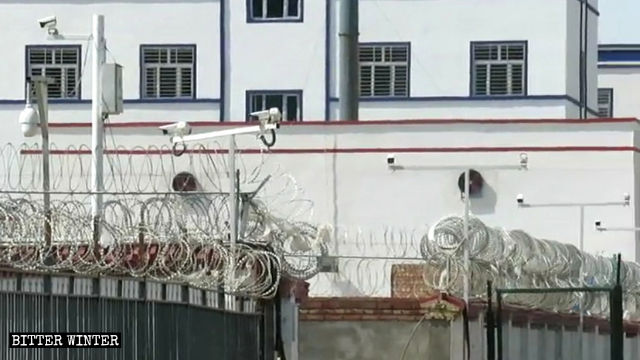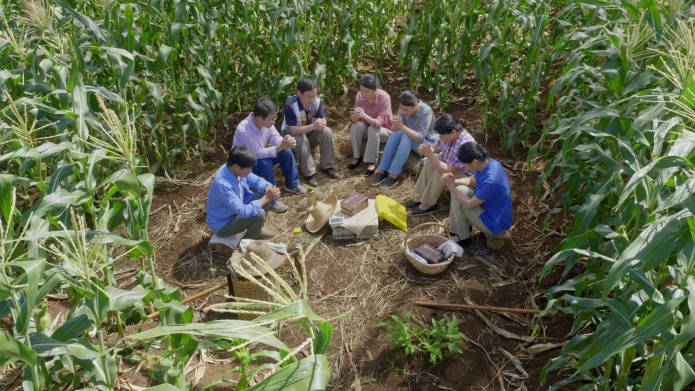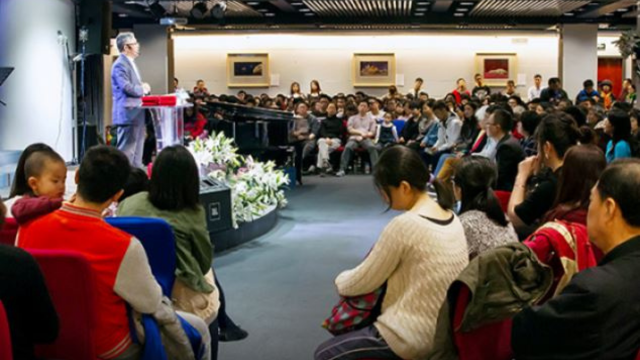
Three who lost their loved ones tell their stories to Bitter Winter. Now, even being a member of CCP is not enough to escape detention if you are a Uyghur or Kazakh attached to your culture.
by Ruth Ingram
An eighty-year-old pensioner is hooded, cuffed, and carted away. For the second time in two years, Milikizat’s elderly father, Abdul Habibul, a retired policeman, was dragged from his home in May this year by armed police. He would spend the first days, weeks, and possibly months in the basement of a police station, barely surviving on a diet of steamed buns and watery gruel. He would almost certainly be subject to bouts of interrogation and even torture. Until now, there is no news of his whereabouts.
Milikizat’s story
Milikizat’s mother, 75-year-old Maryamhan Tursun, is also languishing somewhere in a camp. They share the same fate as their four children, who were all extra-judicially incarcerated in November last year. All without exception have devoted their working life to the state as civil servants. They were all CCP members, and her father served his country as an officer for thirty years. But it seems that no one is immune.
Who has not had the experience of waking falsely from a nightmare, only to find it still raging as they sleep? For Milikizat, now living in Turkey with her husband and three children, and every other Uyghur exile, engulfed in the agony of separation from loved ones, every day passes immersed in this reality. Just as the nightmare should be ending, they are plunged straight back. It never stops.
They were a bright family, university graduates, and model citizens. Eldest brother, 45-year-old Mamat Habibul, worked in life insurance. On April 30, 2017, two and a half years before he was sentenced, he disappeared. Alim Habibul, 42, brother number two, was a prison officer for twenty years in a local jail. Mihray Habibul, eldest sister, 40, police officer, disappeared in 2018, and the youngest sister Bahargul, university graduate and China Rail Telecommunication Company worker, disappeared on June 11, 2017. They were all eventually tried together in November, on secret charges, and sentenced to 3-5 years imprisonment.
Their crimes; a two-week holiday in Turkey to visit Milikizat, chatting to her in Turkey on social media, selling Turkish clothes online, and using a bank account to deposit money for her Turkish clothing export company. The fate of her sister and brother in law’s two children is anybody’s guess. Milikizat fears they have been swept up in the State orphanage “deculturization” program, to be force-fed CCP propaganda.
She is broken by the breakup of her close-knit family, and the cruelty that has engulfed her parent’s latter years. “For the past three years, I have been suffering night and day,” she weeps, hoping against hope that the Chinese government might return “humanity” and “freedom” to her family members. “Every day, I ask myself what is wrong with me? Why can’t we be granted the same dignity as Chinese people?” she asks. “Is being Uyghur a crime? Is having a religion a crime? Is having a different language and culture a crime?”
The trail of CCP destruction seems never ending. Newspaper headlines talk about a mass genocide, but these are individual stories, personal lives that have one by one, slowly and tortuously been torn apart.
Gulaisha’s Story
Gulaisha Oralbay too has come forward to plead on behalf of her family. Their roll of “honor” is impressive.
Dilshat Oralbay. 58-years-old. Brother. University graduate. Award-winning journalist and prolific children’s book translator. Journalist, editor, and translator for the Ili newspaper, moving up the ranks to become manager, then Deputy Director of the Kazakh section of the Kuitun newspaper. Communist Party member. 25 years imprisonment.
Dilshat had already moved to Kazakhstan in 2008, where he opened a successful plastics factory. Suddenly, in 2017, he was called back to China. On arrival, his passport was confiscated, and only a matter of months later he disappeared. Not until June, did the family hear he had been sentenced. To this day, they have no idea of his crime.
Bahtigul Oralbay. 42 years old. Sister. University graduate and Kuitun newspaper employee. Latterly the owner of a small typing and copy shop. She suddenly disappeared in March 2018. In June that year, the family was told of her incarceration for offenses that still remain a mystery to them. Compared with her brother and sister, she escaped “lightly” with a mere 15 years imprisonment. She has two sons. They have both disappeared.
Bagila Oralbay. 38 years old. Sister. Owner of a hair salon, she too disappeared in March 2018. Her sentence, 19 years. Her crime? A mystery. She leaves behind a son and a daughter; their whereabouts currently unknown.
Unlike the majority of detainees, this family is Kazakh, one of the other Turkic groups living in Xinjiang. But they too seem not to be excluded from the madness.
And this is not the first time that their family has suffered dreadfully at the hands of the CCP. Gulaisha recounts how, during the turbulent years of the Cultural Revolution, her father was paraded in a dunce’s cap through the streets of Ghulja, accused of being a rich man’s son, and banished to the countryside. There, shoeless and dressed in rags, he was condemned to several years of hard labour on starvation rations, while his family suffered in equal measure at home, barely finding enough to eat, and crushed by the humiliation of an exiled father. The tyranny eventually ran its course, and he returned. No sooner did the family start to settle into a semblance of normal life, than he died prematurely, barely ten years later.
Gulaisha is distraught and mystified by the gratuitous cruelty dealt out to her family over the years. The injustice of the ruthless prison sentences handed down to her siblings with no trial or explanation is one body blow too many. She is desperate for answers and justice.
Amine’s Story
Amine’s mental anguish knows no bounds. A Uyghur exile living in Turkey, she waits for news of her husband and three children back in the homeland. Sentenced to 15 years extra-legally, her husband has a long road ahead of him in a Chinese jail, but as for the fate of her children, she can only believe the worst.
Strict government birth control policies in the Uyghur-dominated southern city of Hotan forced them to hide her fourth pregnancy but when she fell pregnant again in 2016 this was no longer possible. They panicked. “We didn’t know what to do,” she explains, describing life for ordinary Uyghurs following the “new broom” that was sweeping their province following strongman Chen Quanguo’s appointment as governor. “We couldn’t wear long dresses, we had to wear short. The rules were becoming stricter every day. No beards, no head coverings, no prayers, no religious books. The pressure was terrible,” she said.
They decided to leave for Turkey.
She managed to get passports for herself and the youngest child, and flee before baby number five was born. But before her husband could complete applications for himself and the remaining three children, he was arrested. Shortly after arriving in Turkey, she heard he had been sentenced to 15 years for attempting to flee. The children? She hardly dares imagine what might have become of them.
Her tragedy does not stop there. Her own 60-year-old mother was sentenced to ten years imprisonment in 2018 for the “crime” of staying with Amine in Turkey. Her19-year-old brother Abduhekim Memtimem, while also on a visit to Turkey for medical reasons, suddenly received a horrifying phone call from his father. The terrified man told him that the police had been round to their home demanding Abduhekim return immediately, or he would be arrested and taken to a camp. “Of course, he went back,” she explained. “But since then there has been absolutely no news. They took him because he had been overseas.”
The worry is overwhelming Amine. She is beset with stress-related conditions and now cannot work. News filters through intermittently about other relatives who have either disappeared or been sentenced to draconian terms of between 10-15 years. “What kind of life is this?” she asks. “Waiting, and fretting and crying, thinking and worrying.”
World bodies pontificate, America stabs ineffectually at the dragon, Europe makes loud noises, and the UK parliament drowns admirably in toothless debate, but the Milikizats, the Gulaishas, and the Amines of the Uyghur diaspora drag their leaden spirits from one day to the next.
Sleep eludes them. Rage, despair, and bitterness are constant companions as their minds drift obsessively to wives, husbands, parents, and children left behind. Four years have passed since many of them fled and two since an acceleration of the clampdowns ended all possibility of contacting home.
They are coming forward as never before to tell their stories in the vain hope that someone somewhere will find their lost and bring them back.
Speaking to Bitter Winter, which has become a listening ear for many and a trumpet blast into the silence, their grief pours out. They are grateful that someone is listening. But of course, they want more.
The world moves onto the next crisis, but for an exiled Uyghur who waits for news of loved ones, moving on is a thousand dreams away.
Source: Bitter Winter












